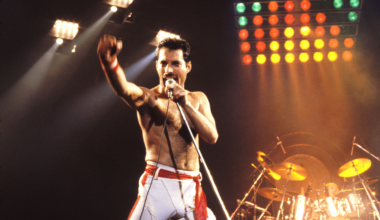When it comes to his many famous feuds, Curtis “50 Cent” Jackson says there’s a method to the madness.
In this week’s issue of PEOPLE, on newsstands Friday, the rapper and actor — whose new book Hustle Harder, Hustler Smarter is out now — opens up about how he discovered that deliberately becoming “enemies” with someone was an effective strategy for promoting his own brand.
“I used it with Oprah [Winfrey],” Jackson says. “My grandmother was a huge fan, so she forced me to watch her show. Every time she mentioned hip hop on her show, it was about what was wrong with it. And all of those things were on my album.”
“So I’m like, ‘I’m never going to get a chance to go on that show,'” he continues. “And every time you look up, the person that’s on there is an A-lister. So how is my audience supposed to perceive me as an A-lister if you don’t see me in the places where you would see an A-lister? I said if we can’t be friends — because she’s not going to invite me to the show — let me make it clear I don’t like her so my audience assumes I’m not there because I don’t want to be.”
Jackson and Winfrey’s beef dates as far back as 2006, when Jackson told the Associated Press that her show catered to “older white women.” The two finally made amends years later, after Jackson ran into Oprah’s best friend Gayle King at a fundraiser for the New York Restoration Project hosted by Bette Midler.
“She adjusted to my character and told Oprah that she needed to meet me because it’s not what you think it is,” Jackson says.
Winfrey, 66, invited Jackson to be on the show in 2012 after King, 65, told her about their meeting.
“We finally met, and my grandmother and I went on the show,” Jackson says. “That was an amazing moment for me. I had sold a whole heap of records, but it wasn’t until Oprah showed up that my grandmother was like, ‘Boy, you made it.'”
In his book, Jackson writes about how he told Winfrey during that interview that when he realized she didn’t like him, he thought, “If I can’t be a friend, at least let me be an enemy … so I can coexist.”
“The reason Gayle and Oprah were so intrigued by that phrase was because it shattered their preconceived notions about me,” he writes. “Before meeting me, they had bought into the 50 Cent persona — that this was someone who got into beefs and drama because he just couldn’t help himself. But when I said ‘at least let me be an enemy,’ they understood that when I got into a beef, it was never driven by emotion. Instead, I was moving off of strategy.”
Jackson further explains in the book that he’d “always prefer to be friends with someone, but if they’re not interested, then I consider being enemies the next best option.”
“If you hate me, you’re more likely to talk about me,” he writes. “If you feel passionately about me in a negative way, at some point you’ll probably say to your friend, ‘Man, I can’t stand 50 Cent.’ Your friend is going to ask you ‘Why?’ and just like that, I’ve become the subject of a conversation. That’s all I’m asking for. Now I’ve got a foot in the door.”
“No one asks their friends if they’ve listened to a song they feel neutral about,” he continues. “No one mentions a writer or a designer that doesn’t elicit a strong reaction in them. We only bring up things we love. Or things we hate. I’d always prefer the love. But if I can’t get that, I’ll take the hate. There’s always a chance I can turn that hate into something positive.”
After Kobe Bryant’s death in January, Jackson said he was turning over a new leaf and not going to argue anymore. He said he’s been sticking to that in the months since then.
“You’re going to hear what I said, and it’s not going to matter what you say back,” he says. “I’m not affected by what people are saying.”







